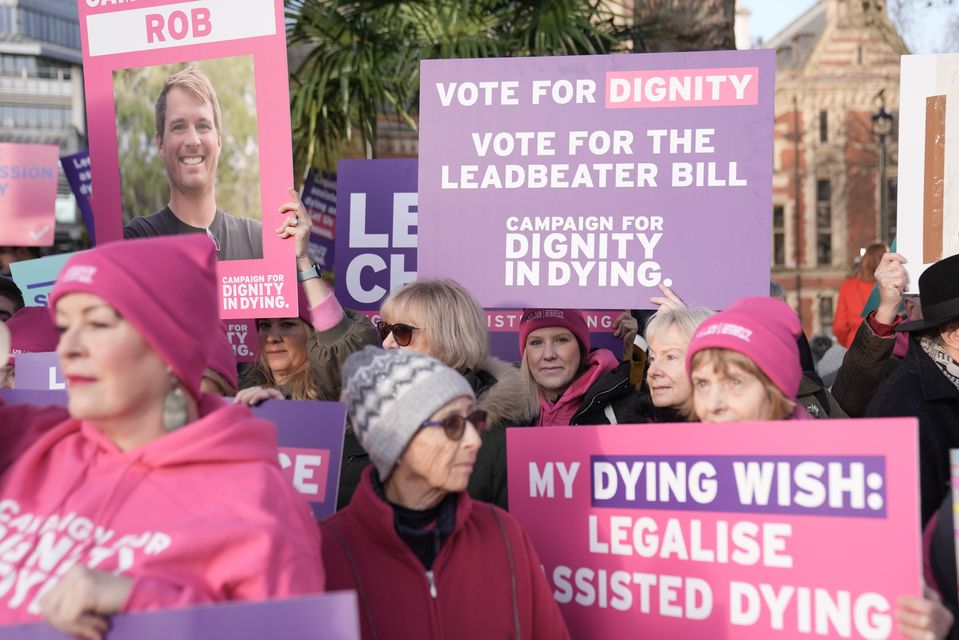Labour opponents of the assisted dying Bill have said scrutiny of the legislation “feels chaotic” following the announcement of a major change to the proposals before Parliament.
Kim Leadbeater, who has sponsored the Terminally Ill Adults (End of Life) Bill, has announced she will bring forward amendments that would replace a High Court judge’s oversight of the process with an expert panel including psychiatrists and social workers.
The MP said the move would strengthen the legislation following concerns expressed during expert evidence sessions last month.
But in a statement on Tuesday evening, 10 of her Labour colleagues said the “promise of High Court scrutiny of each application for assisted dying” had been a central part of Ms Leadbeater’s pitch to MPs at the end of last year.
The group, all of whom voted against the Bill when it first came before the Commons in November, said: “Supporters of the Bill insisted that it was a key part of the protections for vulnerable and marginalised people.
“Yet despite repeated assurances until just days ago the proponents of the Bill have changed their argument – and fundamentally changed the Bill.
“All MPs have an important job to do to make sure that the assisted dying Bill is fit for purpose. Yet the process feels chaotic, with the Bill changing significantly from what was presented to Parliament at second reading.”
Senior Labour MPs Florence Eshalomi and Dame Meg Hillier put their names to the statement, alongside Antonia Bance, Jess Asato, James Frith, Paulette Hamilton, Adam Jogee, David Smith, Yasmin Qureshi and Melanie Ward.
Their comments came after the first day of line-by-line scrutiny of the Bill by a Commons committee, which also saw complaints that the proposed changes – which have not yet been published – hindered examination of the legislation.
Sean Woodcock, another Labour opponent of the change, said the involvement of a High Court judge had been a “central plank” of the Bill and expert evidence had been based on that system.
Parliamentary process allows amendments to be made throughout a Bill’s passage, provided they do not deal with sections of legislation that have already been discussed.
MPs backed Kim Leadbeater’s assisted dying Bill the first time it came before the Commons, but the legislation still faces a lengthy parliamentary process before it becomes law. (Stefan Rousseau/PA)
Kit Malthouse, one of the Bill’s supporters, said the changes had been made “in response to evidence that has been heard by this committee”.
Adding that the committee’s work was “not the end of the process”, he said any further evidence sent to MPs could be considered in future stages.
As it stands, the Bill could see terminally ill adults in England and Wales with less than six months to live legally allowed to end their lives, subject to approval by two doctors and a High Court judge.
Ms Leadbeater had previously said the High Court approval element made her legislation the strictest in the world.
She has now proposed a judge-led Voluntary Assisted Dying Commission that she said would give a greater role to experts, including psychiatrists and social workers, in overseeing applications.
The commission would be led by a High Court judge or a former senior judge and receive all applications and reports from two independent doctors, which would then be referred to a three-member panel chaired by what has been described as a senior legal figure.
Experts would face a “very strict recruitment procedure” to sit on the panel, Ms Leadbeater told the BBC earlier on Tuesday.
She also insisted the change would not move the process behind closed doors, saying there would still be “public proceedings”.
During Tuesday’s scrutiny of the Bill, Ms Leadbeater indicated that she would support proposals to require doctors to refer a case to a psychiatrist if they were concerned someone applying for assisted dying had their judgement impaired by a mental health condition.
